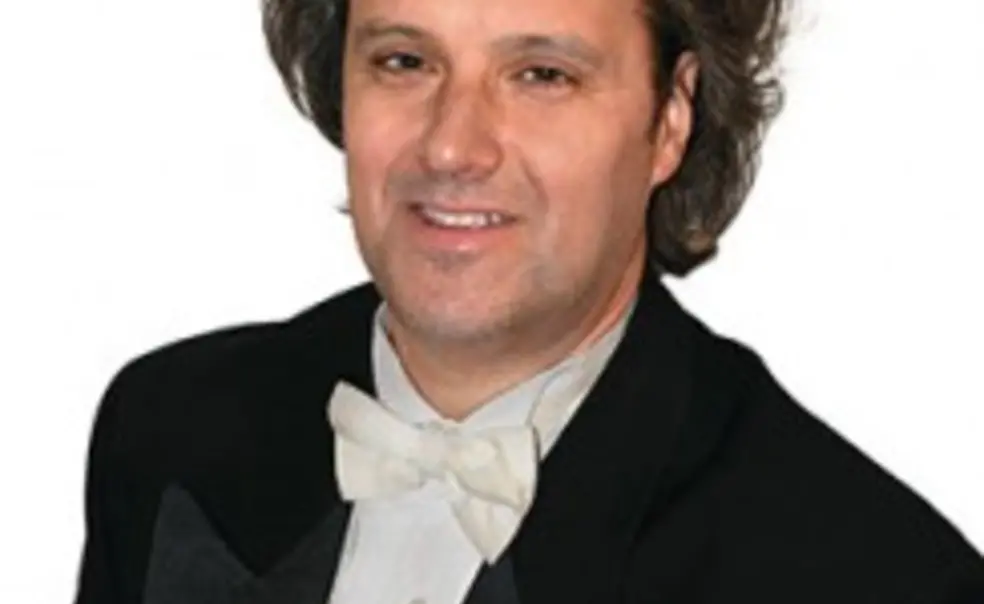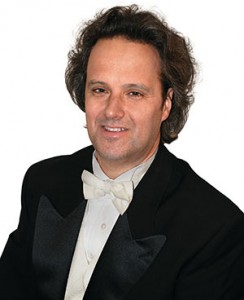Tiger of the Week: Conductor Hobart Earle ’83
Hobart Earle ’83 has conducted in concert halls around the world in a career that spans three decades. But his latest performance was a decidedly different experience: With a small collection of musicians, he led a flash-mob performance of Beethoven’s 9th Symphony in a fish market in Odessa, Ukraine, the Black Sea port where Earle has led the city’s philharmonic orchestra since 1991. “The idea was to bring the music — and bring this uniting spirit — to the people,” he told PAW.
The ensemble, featuring strings, brass, and percussion from the Odessa Philharmonic and singers from the Odessa Opera Chorus, played and sang portions of the fourth movement, including the iconic “Ode to Joy,” for an unsuspecting and appreciative group of Saturday morning shoppers on March 22, the day after Russia’s annexation of Crimea.
Since then, the official video of the event (see below) has drawn more than 80,000 views on YouTube, as well as media attention ranging from a national TV program in Ukraine to WQXR, New York City’s classical music radio station. Other Ukrainian orchestras and choirs, inspired by the performance, have staged their own flash-mob renditions of Beethoven’s 9th at several of Ukraine’s major airports.
Earle’s fish-market debut required careful planning and perfect timing — the musicians did a brief walk-through the night before and synchronized their watches on the morning of the performance. String players were positioned behind market stalls to ensure they would have space to move their bows, and the sheet music for the three excerpts was condensed to a single sheet of letter-sized paper. Earle watched patiently in the crowd before striding to the center of the musicians to conduct the denouement.
Beethoven’s 9th is a seminal piece of Western music, Earle said, and Franz Schiller’s “Ode to Joy” lyrics promote a brotherhood that transcends politics. But the piece also has personal resonance for Earle: He first sang it 1984, a year after his graduation from Princeton, as a chorus member of the Vienna Singverein, and later conducted the symphony in 1994, at a celebration marking the 200th anniversary of Odessa’s founding. “In 1984, there was no way to predict where we’d be in 1994. And back then, how could anyone possibly have imagined where we would all be today?” Earle said. “Music was, is — and will remain — one of the few things that can still hold us together.”













No responses yet